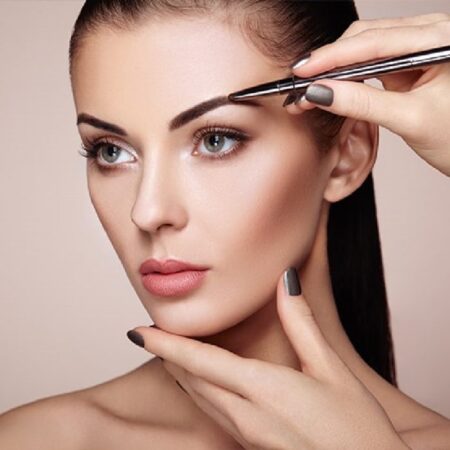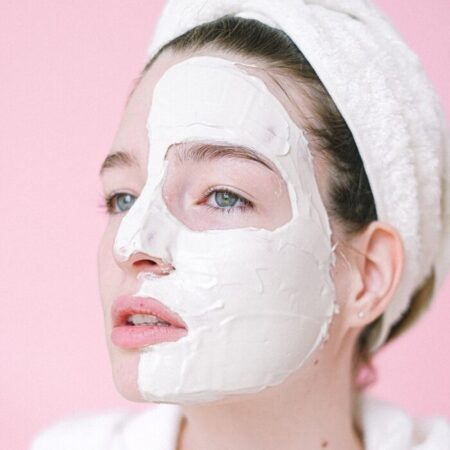
It is rich in Omega 6 which is essential for maintaining healthy skin and hair, and it’s high fatty acid content means that it offers a range of health benefits from supporting mental health to improved cardiac health. But why should we use vitamin F in our skincare? When we heard of vitamin F making a buzz in the beauty world, we could not help but take notice. Our mothers have sure done a fabulous job teaching us the significance of vitamins for our overall well-being. However, vitamin F was something that caught us unaware.
What Is Vitamin F?
Vitamin F is not as new as we thought it to be. It has been there from the 1950s, and the F stands for fat.
Vitamin F refers to a combination of two essential fatty acids, namely linoleic acid (LA) and alpha-linolenic acid (ALA). While the former is more commonly known as Omega-6, the latter is also called Omega-3 (1). As the body cannot make these nutrients, they are called essential fatty acids.
These fatty acids are crucial for brain growth, vision, and other bodily functions (1). They are found in abundance in plant oils like soybean, olive, corn, and flaxseed oils. LA and ALA are also found in nuts and seeds, including sunflower seeds, pecans, almonds, and chia seeds.
Let us now understand the benefits of vitamin F for the skin.
Why Does Your Skin Need Vitamin F?
1. May Enhance The Skin Barrier Function
The skin has multiple layers. The function of the outermost layer is to protect the skin from environmental pollutants and pathogens. This layer is also called the skin barrier. Essential fatty acids are the building blocks of the skin and help heal wounds, cuts, and cold sores. Moreover, these fatty acids help improve the skin barrier function and aid its repair (2).
2. May Restore Skin Moisture
LA is the main component of ceramides, which are waxy substances in the human sebum (3). LA helps lubricate and moisturize the skin’s surface. When the skin does not produce enough sebum, it may go dry and get dehydrated.
3. May Help Fight Acne
Studies have found that fatty acids can reduce acne (4). As fatty acids are essential for healthy cellular function, they may help restore the damage.
However, you may want to consult a dermatologist before using vitamin F for treating acne. The vitamin may not be effective on oily skin and may instead lead to zits and blemishes.
4. May Treat Inflammatory Skin Conditions
The omega-3s in Vitamin F may help treat inflammatory skin conditions like psoriasis, dermatitis, contact hypersensitivity, and ultraviolet radiation (5). This is one reason fatty acids (like the omega-3s) are used extensively in post-corrective treatments such as peels. They allow the skin to recover quickly and help relieve the pain. Some believe fatty acids may also reduce skin sensitive and the resulting inflammation.
5. May Reduce The Signs Of Aging
LA may help reduce the signs of skin aging, including wrinkles or fine lines. However, more research is warranted in this regard.
6. May Protect From The Sunâs Radiation
Excess exposure to the sunâs ultraviolet rays can cause sunburns. Animal studies have shown that omega-3 fatty acids may help reduce the ill effects of ultraviolet radiation. The fatty acids may also reduce the risk of skin cancer (6). Vitamin F, being a rich source of these essential fatty acids, could help in this regard.
These are the potential benefits of vitamin F for the skin. In the following section, we will see how to use it right.
How To Use Vitamin F For Skin?
Although vitamin F is mostly advocated for using on dry or aging skin, it is effective on almost all skin types. As it is an essential component of the skin, you may use it twice a day to experience the maximum benefit.
You can select a number of oils, creams, and serums containing vitamin F. You may also use pure oils containing only omega-3 and omega-6 fatty acids. We suggest you start slow. Use it once a day to see how your skin responds to it. You can adjust the frequency accordingly.
Side Effects Of Using Vitamin F
Vitamin F does not have any proven side effects. However, it is strongly advised to do a patch test before adding this product to your skincare regime. If there is no reaction, you can use vitamin F in the mornings and evenings or as directed.
If the product contains other active ingredients like vitamin C or retinol, you may want to be more cautious. For instance, retinol is best suitable for use at bedtime and should not be used daily. You may check with your dermatologist for more information in this regard.
To Conclude
As more experts are becoming vocal about good fats, there has been a change in public perception. Vitamin F, which is a combination of essential fatty acids, is one such example. These fats could be the gateway to youthful, soft, and supple skin. Start including vitamin F into your skincare routine today. Who knows â they may give you the results you had been looking for!
Frequently Asked Questions
Q. What are ceramides? How can vitamin F help with them?
A. Ceramides are the lipids or fats found in the outermost layer of the skin (7). In fact, they comprise 50% of the skin. They hold the skin together and make it impenetrable. Ceramides also limit the loss of moisture and restrict the entry of irritants. Vitamin F, when applied to the skin, turns into ceramides and helps builds a stronger barrier to protect the skin.
Q. How can I use vitamin F in face masks?
A. For instant glow and plum, you can mix vitamin F oil with any gentle face cream. Take a small amount of the cream and add 2 drops of the oil into a clean vessel. Mix and apply to your skin. Let it sit for at least 10 to 15 minutes to allow the ingredients to penetrate into your skin. Wash with lukewarm water.




























